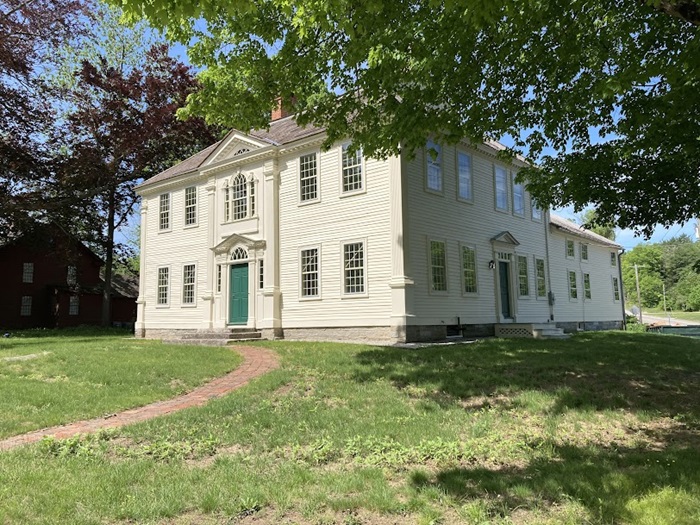Overview

The Museum is open for two tours on Sundays during the winter season from
November 23, 2025 through April 19, 2026!
NOTE: Due to the impending snowstorm, the museum is CLOSED Sunday, 1/25/26. We apologize for the inconvenience.
Please view the "Plan Your Visit" page for detailed tour information.
Purchase tickets through Eventbrite. We look forward to your visit!
Sign up for our email newsletter.
We're Hiring Seasonal Museum Guides (May - Oct)
Apply by January 30th | Info and Application HERE.
NEW!! Take a virtual tour of the Prudence Crandall Museum!
The virtual tour includes the first floor exhibit, "Canterbury Female Boarding School: Courage, Conscience, & Continuance," a view of the empty second floor, and attic space.
About the Story
In 1832, Crandall, the white principal of the Canterbury Female Boarding School, was approached by a young Black woman named Sarah Harris asking to attend the school. Encouraged by conversations with both Harris and Maria Davis, a Black woman who worked for Crandall and shared copies of the abolitionist newspaper The Liberator with her, Crandall agreed to admit Harris. When residents protested the school’s integration and parents threatened to withdraw their students, Crandall closed her school and reopened in 1833 for Black and Brown students. Students traveled from several states to attend the school. Connecticut responded by passing the “Black Law,” which prevented out-of-state Black and Brown people from attending school in Connecticut towns without local town approval. Crandall was arrested, spent one night in jail, and faced three court trials before the case was dismissed. In September 1834, a nighttime mob attack closed the school. These events made national and international news in the 1830s and galvanized the burgeoning abolitionist movement. Many of the students, such as Julia Williams, Mary Miles, and Mary Harris, went on to become educators, reformers, and leaders in their communities. Crandall v. Connecticut impacted two U.S. Supreme Court decisions: Dred Scott v. Sandford and Brown v. Board of Education, Topeka and laid the framework for the 14th Amendment to the U.S. Constitution.
The Prudence Crandall Museum is an International Site of Conscience, a National Historic Landmark, and an Archaeological Preserve located in Canterbury, CT. Prudence Crandall is Connecticut’s Official State Heroine.
About the Museum
The Prudence Crandall Museum is not decorated as a traditional historic house museum. Teachers, students, and supporters left few primary sources on how rooms were used during the time the Canterbury Female Boarding School was in operation, and few artifacts connected to the school have survived.
The exhibit Canterbury Female Boarding School: Courage, Conscience, & Continuance shares the stories of the school's teachers and students and demonstrates expressions of support and opposition at the town, state, national, and global levels during the tumultuous seventeen months the school remained open.
Tours are conversational. Dialogue between guides and visitors show how the legal expansion of education opportunities connects the Canterbury Female Boarding School to the 1954 Brown v. Board of Education, Topeka U.S. Supreme Court case. We hope visitors leave inspired to continue the mission of Sarah Harris and Prudence Crandall by addressing current barriers to education.

The Prudence Crandall Museum is a member of the International Coalition of Sites of Conscience.
Address
1 South Canterbury Road
Canterbury, CT 06331
Mailing address: P.O. Box 58, Canterbury, CT 06331
Contact
(860) 546-7800
Joan DiMartino, Museum Curator & Site Superintendent
joan.dimartino@ct.gov, 860-546-7800 x.101
Social Media
